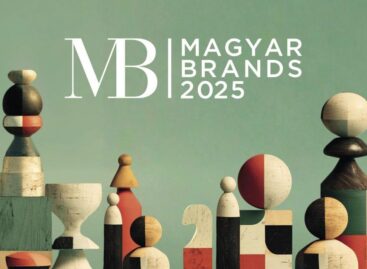How to find the best Hungarian brands? The MagyarBrands Programme will help you!
The MagyarBrands Programme has been assessing Hungarian brands for fourteen years. Its logo is a trademark that marks only the best Hungarian brands.
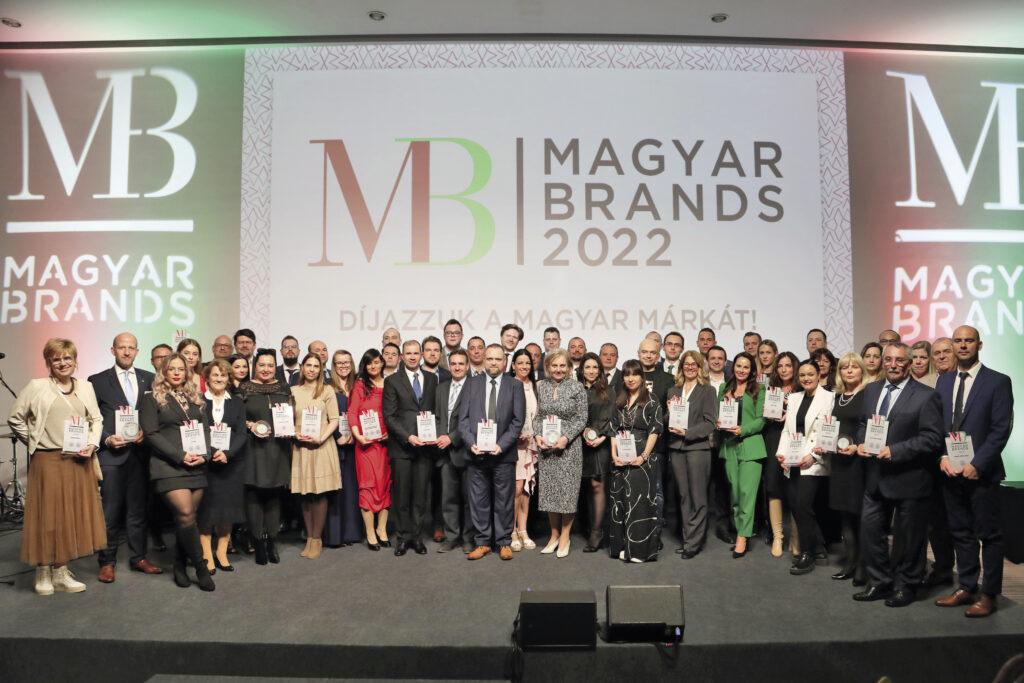
This article is available for reading in Trade magazin 2024/2-3
As for the last selection period, the biggest lesson seems to be that the criteria for excellence need to “green up” as well, because it is becoming increasingly important to know what brands are doing to go green and how they communicate this fact to consumers.
Future criteria for excellence
Recent research by several recruitment companies has made it clear: for their first job, Generation Z employees are choosing companies that are sensitive to green and social values, and actively work towards climate goals.
“We all feel the impact of climate change on our daily lives is becoming more dramatic, also influencing our purchasing decisions more and more. It is great to see that among the successful applicants for the MagyarBrands award, there are more and more brands that are seriously responding to the threats posed by climate change”, said János Serényi, chairman of the MagyarBrands Committee.
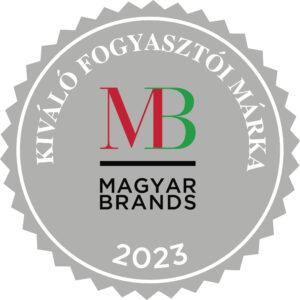
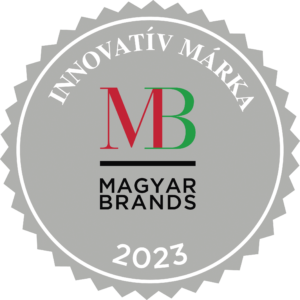
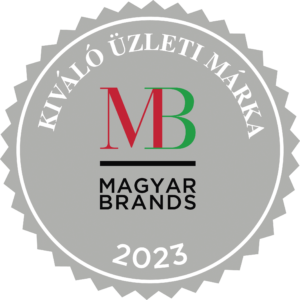
Brands must meet the criteria
In its fourteen-year existence, the MagyarBrands logo has become a trademark that actively helps consumers to find their way around. In a complex, multistage selection process in 2023 – complemented by the opinions of professional committees – some 850 brands were awarded the Excellent Brand Award of MagyarBrands in three categories: excellent consumer brand, business brand and innovative brand.
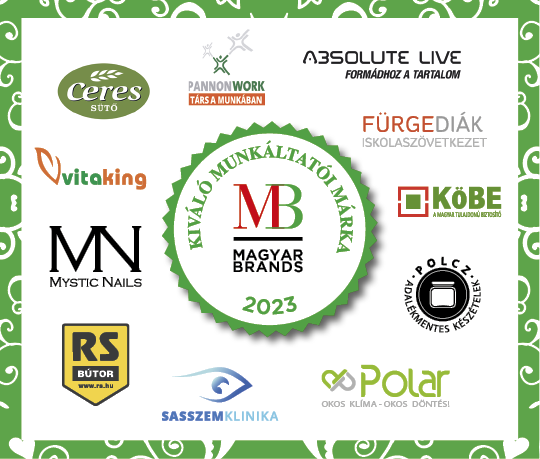
Exceptional also as an employer
In addition to the core categories, the MagyarBrands Programme has been monitoring and evaluating the employer activities of brands for 6 years now. The Excellent Employer Brand Award was given to 18 brands, and the list of winners is available on the programme’s website: www.magyarbrands.hu.

Zita Kulcsár
chairwoman
MagyarBrands
Excellent Employer
Brand category
“In 2023, the role of corporate social responsibility in the life of brands strengthened, while the Employee Experience (EX) was given more consideration in organisations. Companies paid greater attention to retention and strengthening their brand by focusing more on how the workplace can deliver as many positive experiences as possible”,
said Zita Kulcsár, chairwoman of the MagyarBrands Excellent Employer Brand category. //
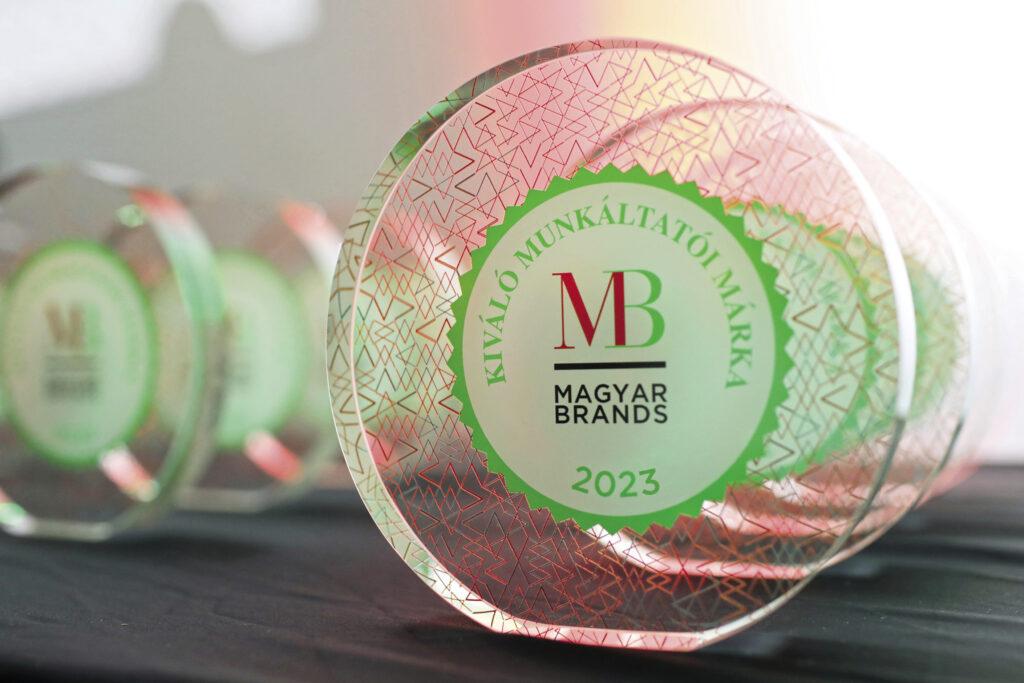
//
Those who judged – Thoughts of the jury
A brand co-exists with consumers

Tamás Barna
managing director
Republic Group
Successful brands usually build on the brand foundations, real consumer insights and needs, and then invest in communication and marketing. Three effective tools work well in making consumers more aware of classic brand equity: the humanisation of brands, omnichannel experience, and data-driven insights.
Brands co-exist with consumers and come alive when they communicate humanely (humanisation), adapt to changes in all areas (omnichannel), monitor target group behaviour (data analysis), and do so in the right style and on the right platforms. AI is a superb efficiency increasing tool, but it can only substitute specific phases, not complete tasks. //
__________________________________________
We can’t let ATL go

Otília Dörnyei
consumer and
retail director
Inspira Research
When it comes to brand awareness and strengthening brand equity, today “everyone” says the only way to communicate is through online channels. I like and support the online world, but I don’t think we should let ATL go. In most cases ATL doesn’t necessarily mean a television or radio spot or a billboard.
For Hungarian brands, ATL is about the human side – the person, the bartender, the waiter, the courier. It is about the fact that quality comes from someone and that someone is always a human, a person. This is why I believe that sales will be one of the last professions where machines will take over. Who wants to buy potatoes from a machine? Or a pizza? //
__________________________________________
Classic and digital

Zsuzsanna Hermann
owner-editor-in-chief
Trade magazin
Digitalisation has transformed branding methods and tools, and nowadays the share of digital is on the rise. Still, experts say there is no effective brand communication without the use of classic ATL tools, and this is also true for MagyarBrands award winners. Thus successful brands need to find a balance between the use of classic and digital tools.
This is also important for us as a publisher active in print media: print advertising is particularly relevant in brand building when used strategically, creatively and in line with the preferences and behaviour of the target audience. //
________________________________________
Brand building can’t be instinct-driven

Bálint Hinora
managing director
Hinora Group
We see a growing number of Hungarian brands that are strong competitors to international brands in their own field. It is important for consumers to see what the iconic assets of a brand are, and how they can be identified – the logo, the colours, the font, the slogan – without which there can be no image.
It is vital to articulate and communicate what makes a brand different from its competitors, what its special competitive edge is. Brand building should never be instinctive, it should follow the beaten path. //
________________________________________
Understanding the customer is key

György Káli
service designer
Humanize Studio
A significant development of the past year was that not only the financially strong international brands pose a challenge to Hungarian companies, but also the trend that in e-commerce the strong players of the neighbouring countries are squeezing the Hungarian ones. The basic rule of e-commerce is that the key to success is the returning customer.
Understanding the customer better is essential, it is the first step. By understanding the customer and their changing needs, attitudes and behaviours, you can stay relevant and respond to rapid changes in order to strengthen your relationship with them. //
________________________________________
Classic brand communication has become secondary

Gabriella Liptay
communications director
KPMG
Classic brand communication and its tools have become second- or even third-rate behind brand experience generating and its well-constructed sharing. Traditional brand communication through mass media is still necessary for the rapid build-up of awareness and engagement, but it is only a strong third in the ranking of importance.
It is equally important to deal quickly with posts and discussion in social and other media resulting from negative consumer and brand experience – true professionals can turn the destructive impact of these to their advantage and induce real corrective processes. //
_____________________________________
Artificial intelligence

Dr. János Serényi
owner, managing director
Értéktrend Consulting
When evaluating the entries, after a while I wasn’t surprised to see the strengthening role of artificial intelligence (AI) in brand building. I believe this toolkit is being used more and more intensively by companies to save a lot of time and money in product development, marketing, communication, etc.
Companies aren’t only using AI more, but also communicate about it more, because customers find them and their products and services extremely trendy, innovative and attractive because of this. They are convinced – and not without reason – that these businesses understand customer needs better than their competitors, and therefore offer their target group the best possible service. //
_________________________________________
Hungarian brand equity

Dr. Gedeon Totth
member of the board,
head of the Agriculture
and Food Department
Hungarian Marketing Association
If a Hungarian brand is unable to compete with international brands that have a lot of capital behind them, then they must try to avoid competition. Domestic brands need to look for what makes them different (artisan, local, etc.) and can be sold as a value, and target a market (local, regional, etc.) where the big players aren’t so active, and where the values offered by Hungarian brands can be important to consumers.
What Hungarian brands that are successful in international markets have in common is that they can demonstrate internationally relevant consumer values. They operate on the basis of a conscious and concept-based marketing strategy. //
_________________________________________
Changes in the media industry and brand building

Zsolt Urbán
vice president
Hungarian Advertising Association
2023 was a turning point in the life of media and brands. It is clear from what is happening that brands will have to reassess the tried and tested channels, and track the media consumption of specific consumer groups. The evolution of digital tools has brought and is forcing the use of channel-specific content. Looking at the situation from a branding perspective, this is both good because there is a lot of opportunity and a huge professional challenge. The big opportunity for domestic brands is even more tangible: they don’t have to join any international brand platform and can be very successful by finding deep consumer insights. //
Related news
This year’s WAVES focuses on the Attention Economy
🎧 Hallgasd a cikket: Lejátszás Szünet Folytatás Leállítás Nyelv: Auto…
Read more >Related news
ZEW: Economic expectations worsened in Germany and the euro area in February
🎧 Hallgasd a cikket: Lejátszás Szünet Folytatás Leállítás Nyelv: Auto…
Read more >NKFH: inspections focus on discount prices and customer deception
🎧 Hallgasd a cikket: Lejátszás Szünet Folytatás Leállítás Nyelv: Auto…
Read more >

